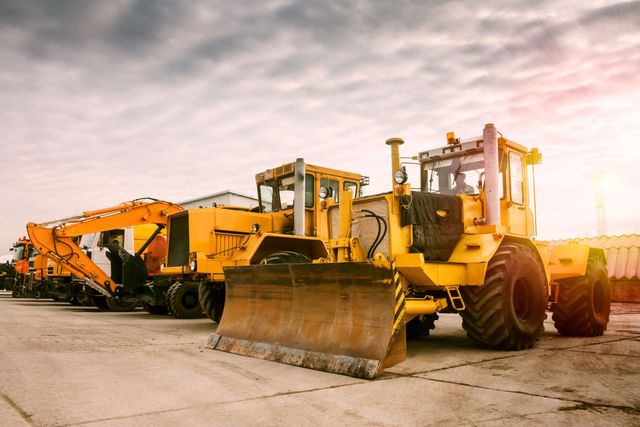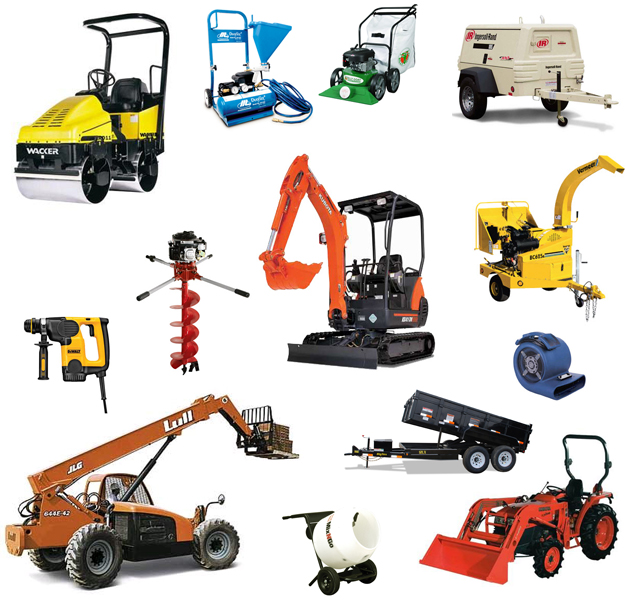Why Renting Out Hefty Devices Makes Financial Sense for Building Companies
In the realm of building and construction service operations, the decision to rent heavy tools over buying outright is a critical choice that significantly shows to be monetarily prudent. The attraction of cost-effectiveness, particularly despite varying project needs and market unpredictabilities, is a compelling variable that steers businesses in the direction of the rental choice. Nonetheless, beyond the apparent savings, there are nuanced layers to think about that clarify why renting heavy equipment is not just a matter of budgeting however a critical step that can affect a business's profits and operational effectiveness in considerable ways.
Affordable Service
When considering renting heavy equipment for building and construction services, selecting this cost-efficient solution can significantly influence the general budget plan administration of the job. Construction jobs usually call for a varied variety of specialized machinery, from excavators to excavators, which can be costly to buy outright. By selecting to rent devices instead, companies can access the necessary tools without encountering the high ahead of time prices related to ownership. This rental approach enables companies to allocate their funds much more efficiently, directing funds in the direction of various other vital facets of the task such as labor, materials, and safety actions.
Building tasks differ in period and extent, and renting supplies the benefit of scaling tools needs according to specific project demands. Generally, picking to rent out heavy devices provides building businesses with a sensible and cost-efficient service that improves job budget administration.
No Upkeep Expenses
Going with devices leasings alleviates the burden of maintenance costs for building and construction companies (heavy equipment rental). When leasing heavy equipment, the obligation for repair and maintenance typically drops on the rental firm as opposed to the building and construction organization. This setup can cause significant price financial savings for the service, as they are not needed to budget plan for unanticipated maintenance expenses or allot sources for routine maintenance
By eliminating upkeep expenses, building organizations can better handle their financial resources and assign resources much more effectively. This monetary predictability allows organizations to plan and spending plan more properly for jobs, guaranteeing that they remain within budget and avoid unanticipated costs that could affect their profits.
.png)
Flexibility in Operations

Additionally, leasing hefty tools gives the opportunity to check different machinery and designs to figure out what jobs best for specific jobs or jobs. Inevitably, the adaptability supplied by renting out heavy devices equips building services to adapt to altering demands and stay competitive in the market.
Accessibility to Latest Devices
Having accessibility to the latest hefty tools via renting out offers construction companies with an one-upmanship in the sector. Renting devices allows construction firms to make use of modern machinery without needing to birth the large in advance expenses of acquiring them outright (heavy equipment rental). This access to advanced equipment makes it possible for companies to handle a bigger variety of jobs and compete better with rivals that may still be using outdated machinery
By renting the most up to date tools, building companies can profit from technological innovations that improve efficiency, safety and security, and precision in their operations. More recent devices commonly comes outfitted with attributes that improve performance, lower downtime, and conform with the current market criteria and guidelines. This not only boosts the high quality of job but likewise helps in completing tasks within deadlines, resulting in greater customer satisfaction and potentially extra service chances.
Moreover, having accessibility to one of the most current equipment through renting allows building and construction companies to stay in advance of the contour in regards dozer rental to technology and versatility. They can swiftly scale their procedures or pivot to various kinds of tasks without being restricted by outdated or underperforming equipment. In a fast-evolving industry like construction, staying current with the current equipment trends is important for long-lasting success and growth.
Scalability for Projects
Accessing scalable hefty equipment via rental arrangements makes it possible for building and construction services to efficiently readjust their ability to fulfill varying job needs. Construction tasks are vibrant in nature, with needs that can change throughout the duration of the task. By opting to rent out hefty devices, companies can easily scale their operations up or down based upon the particular needs of each task. This adaptability enables business to handle a larger range of tasks without being limited by the availability or ability of owned devices.
Moreover, renting equipment for projects with specific needs can be extra affordable than buying and preserving equipment that may only be utilized periodically. For circumstances, if a task requires a particular kind of equipment that the construction company does not very own, renting it for the duration of that job can be a much more monetarily sensible option. In addition, renting out tools removes the demand for lasting storage and maintenance costs, even more adding to the overall scalability and efficiency of construction procedures.

Verdict
To conclude, renting out heavy equipment supplies a cost-efficient option for building organizations by removing upkeep costs, giving versatility in operations, and approving accessibility to the most up to date devices. It also enables scalability in projects, making it a sensible option for building and construction firms wanting to optimize their monetary resources and enhance their procedures.